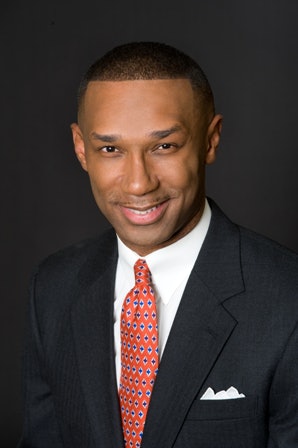In the education space, he was perhaps one of President Obama’s fiercest critics.
And now, as Johnny Taylor prepares to step down as president of the Thurgood Marshall College Fund—a position he’s held for the past seven years—he says that Education Secretary Betsy DeVos as well as FCC Chairman Ajit Pai have reached out since the Trump administration took office last November and have been supportive.  Johnny C. Taylor, Jr.
Johnny C. Taylor, Jr.
“Even if it were a photo op, we couldn’t get one from the first Black president for eight years,” says Taylor of the highly criticized Oval Office photo of President Trump with HBCU presidents that went viral earlier this year. “Every year there’s a convening of HBCUs. [Obama] never came.”
Taylor is leaving his post to become the president of the Society for Human Resource Management (SHRM), an association representing human resource professionals. Dr. Harry Williams, the president of Delaware State University, will replace him.
“I kind of had the advantage of coming into this space with no legacy, predisposition or whatever,” says Taylor in a recent interview with higher education reporters. “The question was always, ‘Are HBCUs still relevant?’ I just thought it was a dumb question. Well, of course they are. That’s the beauty of the American system. There are options.”
A graduate of the University of Miami and Drake Law School, Taylor began his career in 1992 at Blockbuster, the now bankrupted video rental company. For Taylor, the rise and fall of his former employer is still relevant in the HBCU context.
“Look at what’s happened to these iconic institutions. That’s what I think higher ed has got to get itself ready for,” he says. “We ain’t seen nothing yet.”
Earlier this month, Dr. Clayton Christensen, a professor at Harvard, said that half of American colleges will be bankrupt in 10 to 15 years. Christensen was speaking in the context of all colleges and universities in the country. According to Taylor, the situation is much more dire for HBCUs.
“Clayton is a provocateur to be fair, but I gotta tell you, it was shocking to me,” he says. “Let me put that into the context of HBCUs: When White America has a cold, Black America has the flu.”
According to Taylor, one notable issue is the low enrollment of Black students at HBCUs. He cited a Pew report from earlier this year that noted that only 8.5 percent of Black students attended HBCUs in 2015. Taylor contrasted this present reality to when these institutions were first started and were the only option for Black students.
“When you used to have a captive audience, you were guaranteed that your seats were going to be filled… Now you’re competing,” he says, adding that HBCUs are at a disadvantage in this competition as under-supported institutions that serve under-resourced communities. For Taylor, this sums up the struggle of HBCUs: “The market shifted, and you are economically challenged.”
Taylor has previously criticized Obama’s lack of support for HBCUs. In early 2016, he wrote an opinion piece in The Washington Post titled “Do Black Colleges Matter to Obama?” in which he pointed out the lack of HBCU students invited to attend Obama’s State of the Union addresses. He says that Obama also made cuts to Pell Grants, a form of need-based financial aid and an important resource for HBCU students.
“I’m not anti-Obama, I’m not pro-Trump, I’m pro-HBCUs,” he said.
In his new role at the Society for Human Resource Management, Taylor hopes to promote his vision for diversity and equity in the workplace.
“More practically, what I want to do is expose HR managers around the world to start thinking about HBCUs as recruiting sources,” he says, adding that Black Americans should make the support of HBCUs a priority.
“There is no shortage of Black wealth. We’ve gotta stop looking to the federal government to exclusively do it,” he says. “You can’t keep saying you value something, but your actions are inconsistent with that. . . Only us can save us.”
Dr. Lorenzo Esters, vice president of philanthropy at Strada Education, a higher education nonprofit that helps fund TMCF scholarships, says that Taylor’s commitment to social justice and equity ushered in a new era for TMCF.
“He understands that for our nation to thrive, all people must have access to meaningful education and employment opportunities,” says Esters. “His passionate leadership changed the future of TMCF for good, and we know his strong legacy of impact will continue through his work at SHRM.”
Joseph Hong can be reached at [email protected]
that went


















